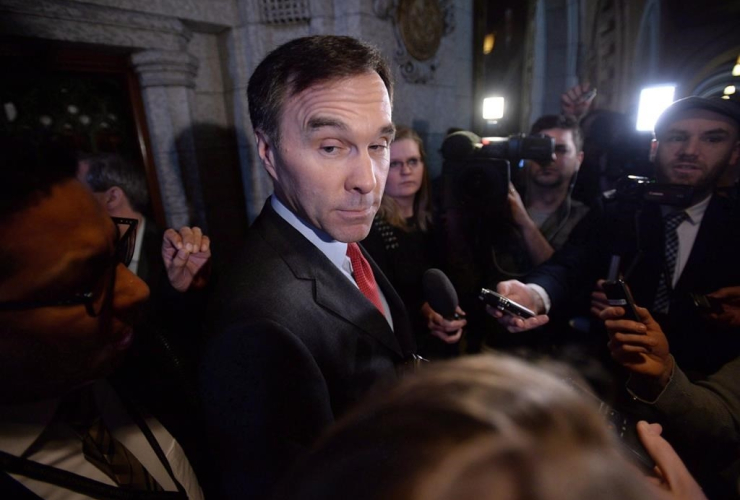The federal minister in charge of the employment insurance system says the program needs a serious redesign in the next few years to meet changing economic and social conditions.
In a roundtable interview with The Canadian Press this week, Social Development Minister Jean-Yves Duclos said he believes the EI system should be simplified, include better work incentives and improve the quality and the availability of services that people expect.
An economist who specialized in social policy as an academic, Duclos said the EI system is overly complex, with even the best officials in his department typically having difficulty understanding the ins and out of the program.
He said EI needs to support current living standards and improve the ability and willingness of people to invest in housing, training and education that could improve their future.
"Our labour market circumstances are changing very rapidly leading to both challenges for the middle class when it comes to having good jobs, sufficiently well paid (jobs) for them to invest in their future and the future of their families, as well as their sense of income and work security," Duclos said.
"It's not only the current living standards that are of great concern to many of our families — it's also their vision of the future that generates stress and anxiety that have an impact on their ability, again, to project themselves into the future."
Duclos said he didn't know how long it would take to study, discuss, deliberate and decide on changes.
Changes to the EI system can be politically problematic for a government. In the last election, the Liberals swept Atlantic Canada, riding a promise to reverse Tory changes to EI. Almost 20 years earlier, the Jean Chretien Liberals lost 20 seats in region in the 1997 election after angering voters over their own changes to EI.
Duclos tried to strike a more balanced tone when discussing the future of the program, saying the focus needs to be on making the program equitable
"We want equity in the quality of services, we want equity in a way which combines both the short-term and the long-term benefits that workers receive from EI," Duclos said.
The Liberals first budget made a number of changes to the system, all designed to expand eligibility, lengthen the duration of benefits for hard-hit regions, decrease the time applicants wait before they receive benefits and revamp training programs.
The budget said the spending measures this year and next would cost almost $2.5 billion, not including $175 million this year for skills training programs delivered with the provinces targeting workers whether they qualify for EI or not.
Some of the measures are already in place: Extended benefits for 15 regions hard-hit by the drop in commodity prices kicked in July 1. The government has expanded work-sharing agreements to 76 weeks from 38 weeks, cut the number of work hours that recent entrants or re-entrants to the labour force need to qualify for EI, and extended a program to let EI recipients work without a deep clawback in their payments.
There is one measure still yet to take effect: The government's promise to reduce the waiting period for a first benefit payment to one week from two. That is due Jan. 1.
Duclos said the government is still working on improving services, which includes hiring more workers to answer phones at EI call centres and process applications. A panel of MPs is scheduled to report to the government by the end of the this year about issues in the EI service system with recommendations on how to address them.
The minister said the Liberals are willing to work with provincial governments to better streamline the social safety net and eliminate complexities.
"If they want to act, we'll be there to help, either by providing the data and research or by engaging them on issues of program alignment that they might find of interest," he said.



Comments